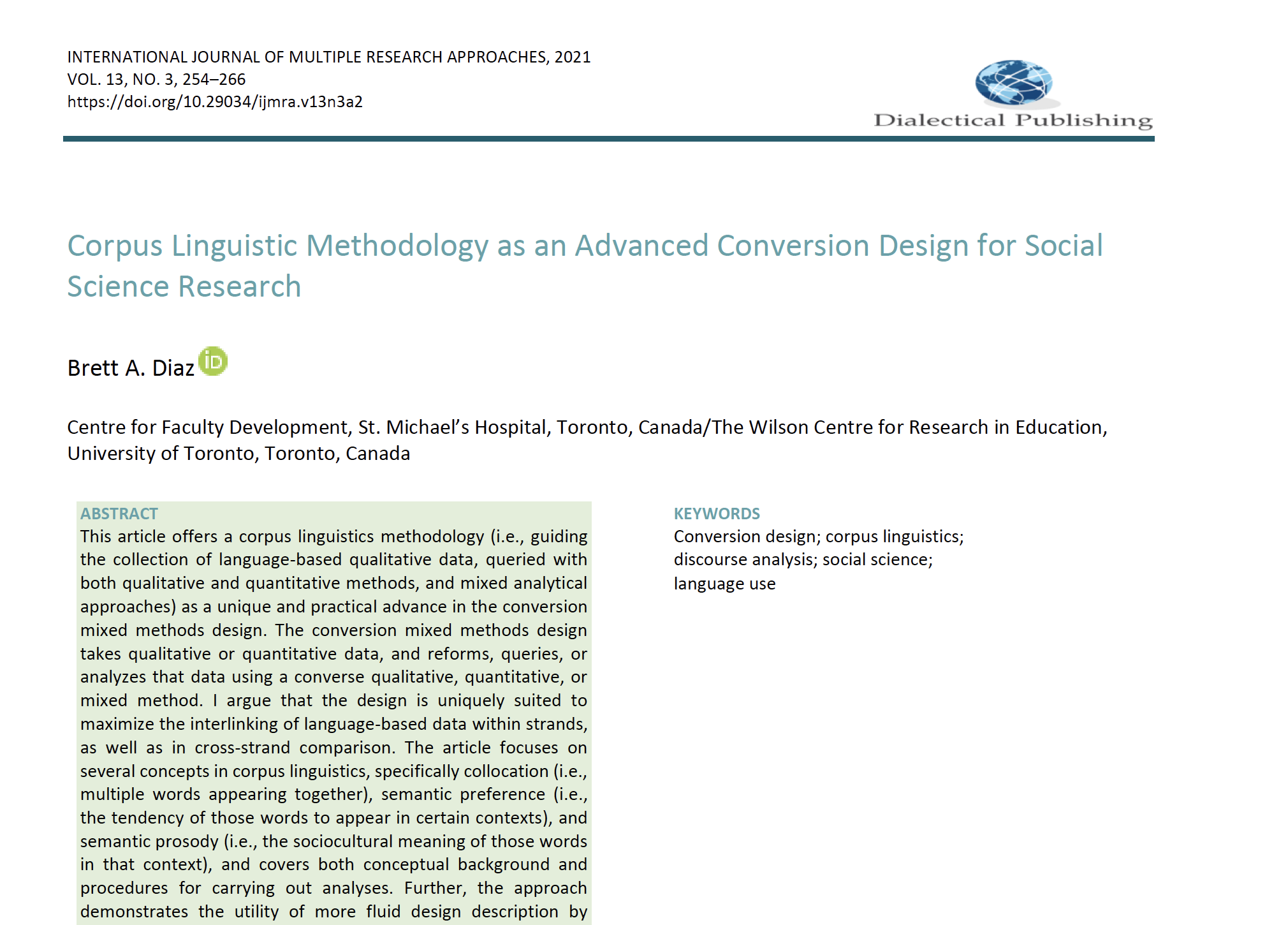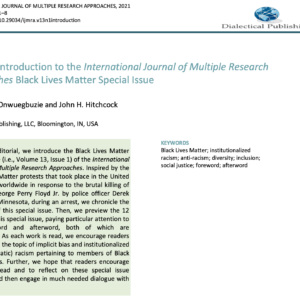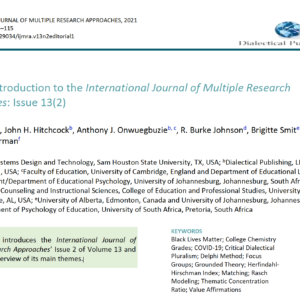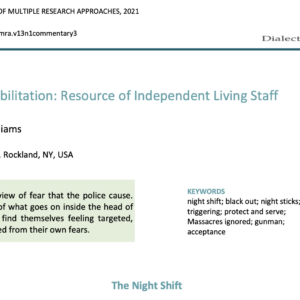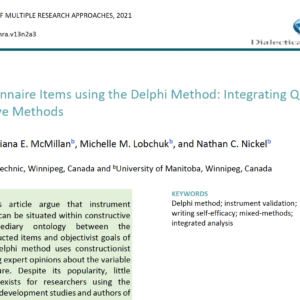13(3). 03. Corpus Linguistic Methodology as an Advanced Conversion Design for Social Science Research
$30.00
Description
Author
Brett A. Diaz
Centre for Faculty Development, St. Michael’s Hospital, Toronto, Canada/The Wilson Centre for Research in Education, University of Toronto, Toronto, Canada
Abstract
This article offers a corpus linguistics methodology (i.e., guiding the collection of language-based qualitative data, queried with both qualitative and quantitative methods, and mixed analytical approaches) as a unique and practical advance in the conversion mixed methods design. The conversion mixed methods design takes qualitative or quantitative data, and reforms, queries, or analyzes that data using a converse qualitative, quantitative, or mixed method. I argue that the design is uniquely suited to maximize the interlinking of language-based data within strands, as well as in cross-strand comparison. The article focuses on several concepts in corpus linguistics, specifically collocation (i.e., multiple words appearing together), semantic preference (i.e., the tendency of those words to appear in certain contexts), and semantic prosody (i.e., the sociocultural meaning of those words in that context), and covers both conceptual background and procedures for carrying out analyses. Further, the approach demonstrates the utility of more fluid design description by focusing on the timing and purpose of integration. I articulate this argument by outlining a study on the opioid epidemic in elderly health services in rural Pennsylvania, with the help of a zipper metaphor to describe the design. The article concludes with a discussion of the value of this advanced design to mixed methods researchers representing the social sciences outside of linguistics-centered disciplines, at a methodological level, as well as the ready availability of tools that allow researchers to instrumentalize the design.
